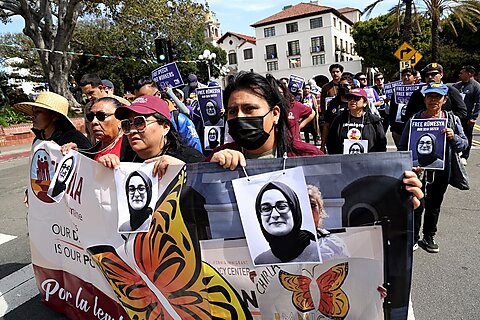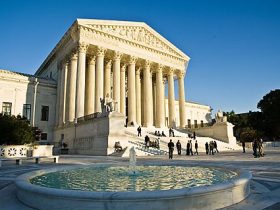Thomas A. Berry
Rumeysa Ozturk is a graduate student at Tufts University in Massachusetts. Ozturk is a Turkish citizen who was living in the United States on a student visa. On March 25, Ozturk was approached and surrounded by six plainclothes officers, stripped of her cellphone and backpack, handcuffed, and taken into custody in an unmarked vehicle. Unbeknownst to her, the United States had revoked her visa just days earlier. Ozturk was transferred to Vermont and then Louisiana, where she remains in custody.
A provision of federal immigration law grants the Secretary of State the authority to deport an alien if the secretary “has reasonable ground to believe” that the alien’s “presence or activities in the United States … would have potentially serious adverse foreign policy consequences for the United States.” The government cited this provision in revoking Ozturk’s visa, without specifying why it believed her presence would have adverse foreign policy consequences.
Evidence indicates that Ozturk’s visa was revoked solely on the basis of an op-ed she co-authored for a student newspaper. That op-ed criticized the Tufts University administration for dismissing certain student government resolutions. The op-ed argued that these resolutions would have held “Israel accountable for clear violations of international law” in Palestine.
Ozturk has petitioned a federal court to order her released, and Cato has joined a broad coalition of groups, led by FIRE, to file an amicus brief supporting that petition. In our brief, we explain that noncitizens residing in the United States have the same First Amendment rights as citizens. The Supreme Court said as much in Bridges v. Wixon (1945), where the Court remarked that “freedom of speech and of the press is accorded aliens residing in this country.” The Supreme Court also affirmed this principle in Bridges v. California (1941), a case in which the Court invalidated the criminal convictions of several people, including a non-citizen, because those convictions violated the First Amendment.
As our brief further explains, Ozturk’s op-ed was protected speech. The government has not alleged that Ozturk was providing material support to terrorists, nor has it alleged that her op-ed fell into any other exception to the First Amendment (such as insurrectionary speech). If a citizen were punished for the same commentary, such punishment would be a blatant First Amendment violation. Ms. Ozturk’s punishment is no different.
Finally, our brief emphasizes that Ozturk’s detention is irreconcilable with the Supreme Court’s admonition that colleges and their “surrounding environs” are “peculiarly the marketplace of ideas.” There are more than a million international students studying at America’s universities. None of them will feel safe criticizing the American government—in class, scholarship, or on their own time—if a current or future Secretary of State may, at his unreviewable discretion, arrest and detain them based on their spoken or written advocacy.
As Justice Frank Murphy wrote in a concurrence in the Wixon case, the freedom of foreign nationals lawfully residing in the United States is “not dependent upon their conformity to the popular notions of the moment,” because the First Amendment “belongs to them as well as to all citizens.”
Ozturk’s detention and the revocation of her visa violate the First Amendment, and the courts should order her released.








